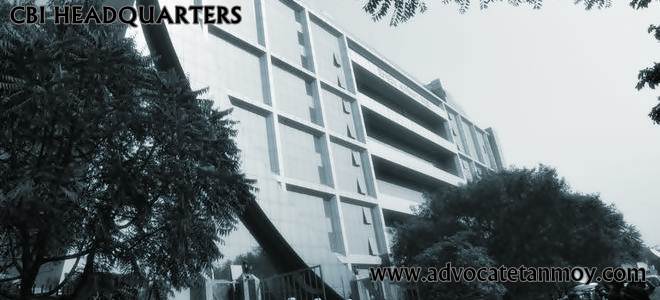Section 3 of the Delhi Special Police Establishment Act stipulates that the Central Government may, by notification in the official gazette, specify the offences or class of offences which are to be investigated by the Delhi Special Police Establishment. Section 5 of the Act provides for extension of powers and jurisdictionJurisdiction Authority by which courts receive and decide cases. Limited Jurisdiction: the authority over only particular types of cases, or cases under a prescribed amount in controversy, or seeking only certain types of relief, the District Court is a court of limited jurisdiction. Original Jurisdiction: Jurisdiction of the first court to hear a case. of Special Police Establishment to other areas which reads as follows :
5. Extension of powers and jurisdiction of Special Police Establishment to other areas :-
(1) The Central Government may by order extend to any area (including Railway areas) in a State not being a Union Territory or Railway area, the powers and jurisdiction of members of the Delhi Special Police Establishment for the investigationInvestigation Purpose of all investigation is to reveal the unvarnished truth. The constitutional courts are duty bound to ensure that the truth is revealed. of any offences or class of offences specified in a notification u/s 3.
(2) When by an order under Sub-section (1) the powers and jurisdiction of members of the said Police Establishment are extended to any such area, a member thereof may, subject to any order which the Central Government may make in this behalf, discharge the functions of a police officer in that area and shall, while so discharging such functions be deemed to be a member of the police force of that area and be vested with the powers, functions and privileges and be subject to the liabilities of a police officer belonging to that police force.
(3) Where any such order under Sub-section (1) is made in relation to any area, then without prejudice to the provisions of Sub-section (2), any member of the Delhi Special Police Establishment of or above the rank of Sub-Inspector may, subject to any orders which the Central Government may make in this behalf, exercise the powers of the officer-in-charge of a police station in that area and when so exercising such powers, shall be deemed to be an officer-in-charge of a police station discharging the functions of such an officer within the limits of his station.
Section 6 of the Act deals with the consent of the State Government to exercise the powers and jurisdiction which reads as follows :
6. Nothing contained in Section 5 shall be deemed to enable any member of the Delhi Special Police Establishment to exercise powers and jurisdiction in any area in a Part-A State or Part-B State, not being a Railway area without the consent of the Government of that State.
However, where it is found that the investigation by the local police was perfunctory and incomplete or unfair, it is open to the Court to direct investigation by the CBI. The issue was settled by the Supreme Court in State of West Bengal and Others Vs. Sampat Lal and Others, wherein observing that though there is a well defined hierarchical administrative setup of the police in the State, creating a new channel of inquiry or investigation is likely to undermine the importance of the statutory agency which is likely to give an impression that “everything is not well with the statutory agency and it is likely to cast a stigma on the regular police hierarchy”, the apex Court observed that the power to direct CBI investigation can be exercised by the Court notwithstanding the non-issuance of the notification u/s 6 of the Delhi Special Police Establishment Act in appropriate cases. To quote, “in our considered opinionOpinion A judge's written explanation of a decision of the court. In an appeal, multiple opinions may be written. The court’s ruling comes from a majority of judges and forms the majority opinion. A dissenting opinion disagrees with the majority because of the reasoning and/or the principles of law on which the decision is based. A concurring opinion agrees with the end result of the court but offers further comment possibly because they disagree with how the court reached its conclusion. Section 6 of the Act does not apply when the Court gives direction to CBI to conduct investigation and counsel for the parties directly did not dispute this position.” In the instant case, the State Government has already issued the necessary notification u/s 6 of the said Act.

More Stories
Bhagat Singh’s Statement u/s 313 CrPC in Assembly Bomb Case
Supreme Court: Maharashtra can grant Remission in Bilkis Rasool Case (08/01/2024)
Canada SC upholds a constable’s conviction for aggravated assault (14/12/2023)